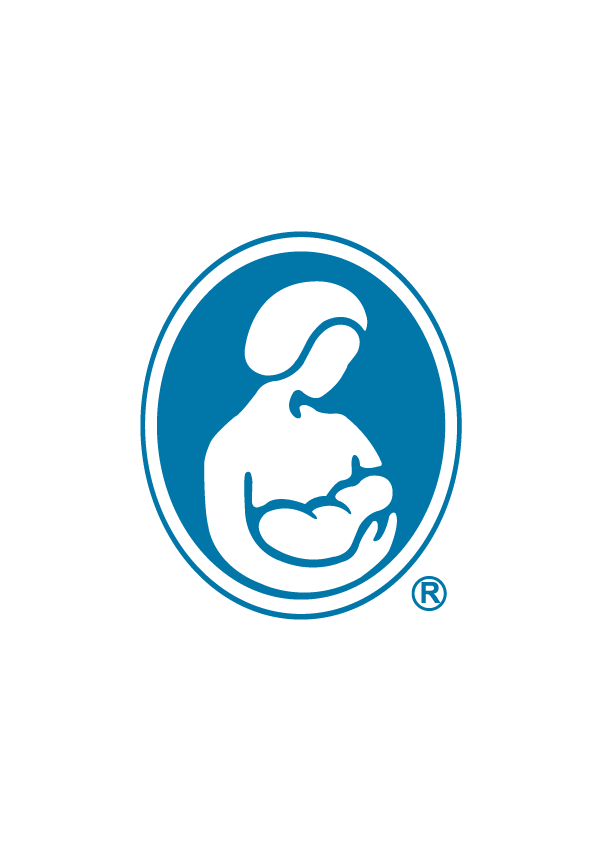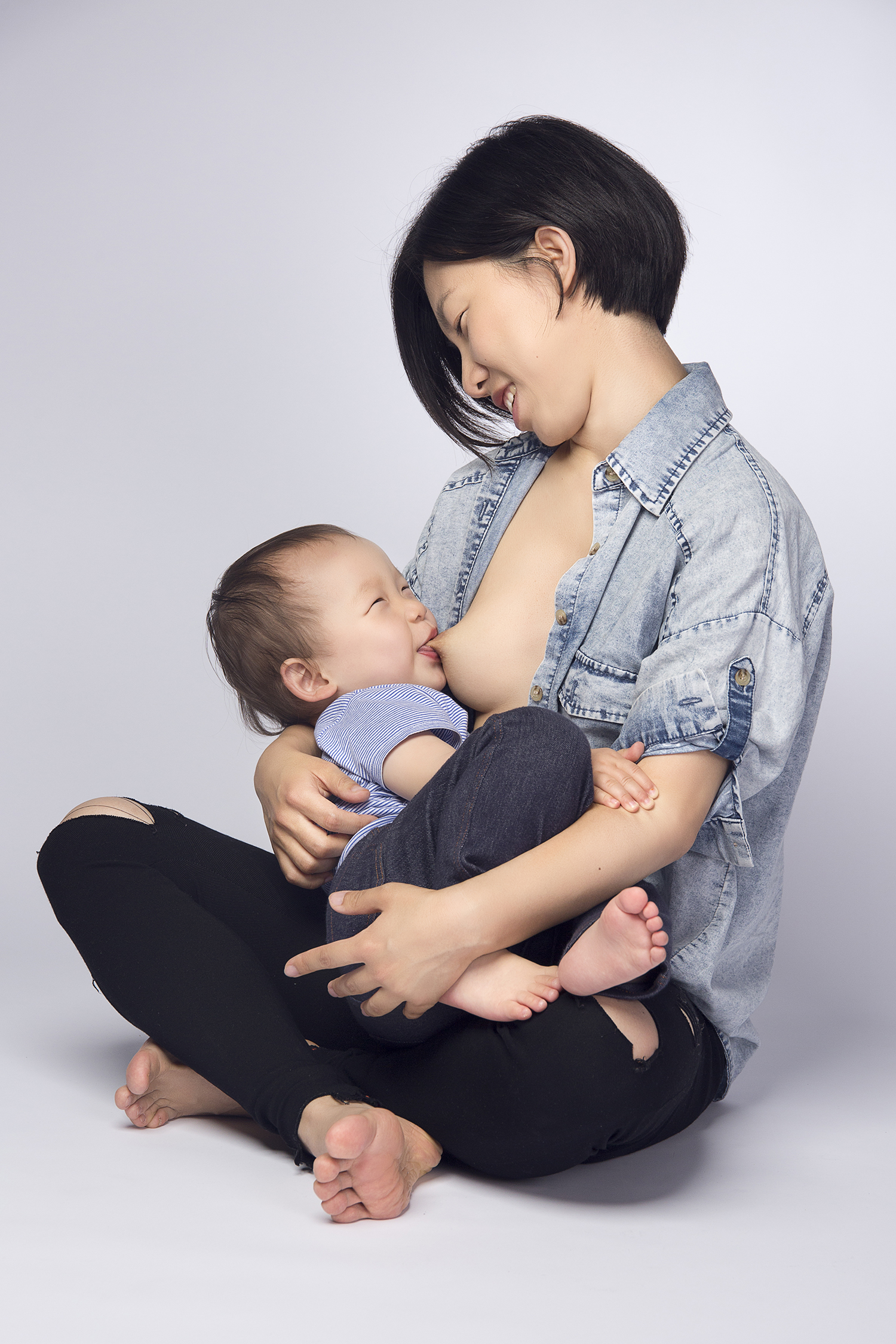Sarah McCann, Carrickfergus, Northern Ireland
Adapted from her blog “Breastfeeding Resources, Northern Ireland,” posted August 2, 2011.
萨拉.麦卡恩,卡里克弗格斯,北爱尔兰
源自萨拉2011年8月2日发布的博客“北爱尔兰母乳喂养资源”
翻译:黄迎
审阅:Missy,Victoria
Sudden weaning in order to take a medication comes with risks and difficulties for mother and baby. Sarah looks at the implications of an early end to breastfeeding and explains that many medications are compatible with breastfeeding.
接受药物治疗导致突然离乳,会给母婴双方带来风险和困难。萨拉从探察提早离乳带来的影响,解释了许多药物与母乳喂养是兼容的。
When a mother is pressured to stop breastfeeding in order to take a medication, those doing the pressuring often don’t understand the implications of weaning for mother and baby. A health professional may not have much or any breastfeeding experience and may feel that breastfeeding into toddlerhood is strange. They may see nursing as the baby’s food and not be aware of the relationship. They may think that breastfeeding is a nice thing to do if all is well, but that it is stressful if a mother is ill (Calvert, 2014). They may wonder, “Why breastfeed for more than a few months anyway?”
当一位母亲因药物治疗而被迫停止母乳喂养时,那些施压的人并不了解离乳给母婴双方带来的影响。医务人员也许没有或者仅有很少的母乳喂养经验,可能会觉得哺乳学步儿是很奇怪的事情。他们把哺乳仅看成是婴儿食物而没有意识到其中的母婴联结关系。他们可能认为在母婴健康的情况下,母乳喂养是一件好事,但如果母亲生病了,母乳喂养将给妈妈带来压力(Calvert, 2014)。他们可能怀疑,“母乳喂养几个月就好了,为什么要喂那么久的奶呢?”
Why breastfeed for more than a few months anyway?
Katherine Dettwyler, Associate Professor of Anthropology at the University of Delaware, USA (2003), suggests that the natural weaning age of humans is probably between three and seven years of age. Both La Leche League and the World Health Organization support breastfeeding beyond the early months and into toddlerhood. As the length of time that a baby is breastfed increases, there is a reduced risk of infection, optimal teeth and jaw development, and development of a normal immune system, which is not mature until about six years of age (Dettwyler, 2003). Breastfeeding also provides pain relief (during teething, for instance), acts as a nutritional cushion during illness, and helps to avoid hospitalization. Breastfeeding is an easy way to comfort a baby or toddler and helps them to fall asleep. A mother’s confidence from these basic activities may have been vital to her parenting experience up until that point.
为什么母乳喂养不止是几个月的事呢?
美国特拉华大学人类学副教授Katherine Dettwyler(2003)认为人类自然离乳的时间大概在3-7岁。国际母乳会和世界卫生组织均支持在宝宝的生命最初几个月和学步期都进行母乳喂养。随着婴儿接受母乳喂养时间的延长,会降低感染的风险,促进牙齿和下颌的最佳发育,以及免疫系统的正常发育,而免疫系统完全发育成熟需要等到6岁左右(Dettwyler, 2003)。母乳喂养也能缓解疼痛(例如出牙时),在生病时提供营养来源,并有助于避免住院。母乳喂养是安抚婴儿和学步儿并帮助其入睡的舒适方法。母亲从母乳喂养这些基本行为中获得的自信对于她今后的育儿经历是很重要的。
Risks of sudden weaning to the mother.
突然离乳给母亲带来的风险
Sudden weaning can affect an individual nursing dyad in many different ways and may also have implications for the mother’s partner and wider family.
突然离乳会在许多不同方面影响母乳喂养中的母婴双方,甚至可能影响到母亲的伴侣和家庭中更多的人。
Sudden weaning may:
突然离乳可能会:
Induce pain and engorgement. A mother may continue to make a large volume of milk whatever baby’s age.
引起乳房疼痛和肿胀。无论婴儿月龄多大,母亲都可能持续分泌大量的乳汁。
Lead to plugged ducts, mastitis, or an abscess.
导致乳腺管堵塞,乳腺炎或者乳腺脓肿。
Increase mother’s stress levels, leading to increased symptoms of depression (Kendall-Tackett, 2007).
增加母亲的压力,导致抑郁症状加重(Kendall-Tackett, 2007)。
Lead to feelings of loss, grief or incompetency (Sharma and Corpse, 2008), even mimicking child loss (Gallup, 2010) and thus bringing on depression (Sharma and Corpse, 2008).
导致母亲感到失落、悲伤或无能(Sharma and Corpse, 2008),甚至像失去孩子一样(Gallup, 2010),从而引起抑郁(Sharma and Corpse, 2008)。
Cause mother to lose an easy way to feed and comfort her baby, especially during teething or illness.
让母亲失去一种简单的喂养和安抚孩子的方法,尤其是长牙或生病的时候。
Require dealing with baby or toddler’s continued desire to breastfeed, distressing both parties.
需要面对婴儿或学步儿仍然想要母乳喂养的需求,使得母亲和孩子双方都感到痛苦。
Cause a loss in the calming effects of prolactin and oxytocin, important hormones produced during breastfeeding that help mothers and babies relax and bond.
失去催产素和泌乳素带来的安抚作用,这两种在哺乳中产生的激素可以帮助母婴双方放松并产生连接。
Increase mother’s fertility, particularly if she has no access to other forms of contraception or chooses not to use birth control (Sears, 2015).
增加母亲怀孕的可能性,尤其是她没有使用其他避孕方式或者不选择节育时(Sears, 2015)。
Increase the risk that mother or another family member will have to put time and effort into caring for a sick baby or toddler.
增加母亲或其他家庭成员不得不花费时间和精力照顾生病的婴儿或者学步儿的风险。
Lead a mother to avoid treatment of a potentially dangerous and life-threatening situation for her and her baby to avoid sudden weaning (Amir, Ryan and Jordan, 2012).
导致母亲为了避免突然离乳对母婴双方造成的影响,而逃避对身体存在潜在危险或威胁生命的状况所进行的治疗(Amir, Ryan and Jordan, 2012)。
Risks of sudden weaning to the baby.
突然离乳给婴儿带来的风险
There are many implications for babies, including:
这对婴儿有许多影响,包括:
An increased risk of infection.
增加感染的风险。
Losing comfort and closeness with their mother, reducing bonding.Becoming suddenly totally dependent on outside sources of food, such as baby formula and solid foods. This can be difficult for some babies, especially if they won’t take a bottle or cup, or are only accepting a small amount of solid food, which is also stressful for the mother.
失去母亲的安抚和亲密,减少母婴亲密联结。突然变成需要完全依赖源自外部的食物,如配方奶和固体食物。这对于一些婴儿来说是很困难的,尤其是如果他们不接受瓶喂或杯喂,或者仅能接受少量固体食物。这也会给母亲带来压力。
Losing the protective effects of breastfeeding on future mental health, a particularly important issue if a mother is depressed. Research shows that the baby of a breastfeeding mother being treated for depression has better future mental health outcomes than the formula-fed baby whose mother is being treated for depression (Jones, McFall, and Diego, 2004).
失去母乳喂养对婴儿未来心理健康的保护作用,这种保护作用对母亲患有抑郁的婴儿尤为重要。研究表明,在母亲接受抑郁症治疗的情况下,母乳喂养的婴儿相对于配方奶喂养的婴儿,在未来有更好的心理健康(Jones, McFall, and Diego, 2004)。
Risks to the baby of medications in the mother’s milk.
母乳中含有药物给婴儿带来的医疗风险
Mothers may hear that early weaning is necessary due to increased risk to the child from medications in the mother’s milk. The reality is that:
母亲可能听说由于母乳中含有药物需要提早离乳。而事实是:
Risks to the baby are greater during pregnancy than during breastfeeding (Kendall-Tackett and Hale, 2010).
药物对宝宝的风险,在孕期大于哺乳期(Kendall-Tackett and Hale, 2010)。
If a toddler is feeding only a few times per day, his exposure to the medication will be much lower than that of a newborn.
如果学步儿在一天内只吃几次奶,他/她暴露在药物下的机会要比新生儿低很多。
Many medications are considered compatible with breastfeeding and are believed to cause no harm to the infant. Many medications don’t cross over into mother’s milk and most only cross in very small amounts, equivalent to a very small percentage of the mother’s dose (Hale, 2015).
许多药物治疗兼容于母乳喂养,并没有对婴儿造成伤害。许多药物不进入母乳,大多数药物仅有极少量进入乳汁,相当于母亲使用剂量的很少的百分比(Hale, 2015)。
See Breastfeeding and Medications for a summary of books, reputable websites, and helplines for checking the compatibility of medications during breastfeeding.
从书本、可信赖的网站和求助热线中了解母乳喂养与药物,以确定哺乳期是否可以使用相应的药物。
Gentle weaning
温柔离乳
If it is necessary for a mother to wean before she was planning to, here are some questions a Leader can use to encourage a mother to discuss options with her physician and pharmacist:
如果情况一位母亲确实需要比原计划提早离乳,哺乳辅导可以鼓励母亲与她的医生和药剂师就以下问题探讨可供选择的治疗方案:
Could an alternative, more compatible medication be prescribed?
是否可以使用与母乳喂养更兼容的替代性药物?
Can the medication be delayed until she planned to wean? Could it be delayed long enough to allow gradual, more natural weaning?
治疗是否可以推迟到母亲计划离乳的时候?能否推迟足够长的时间,使得离乳可以较为平缓和自然地进行?
Would the infant’s exposure to the medication for a relatively short time be safe, allowing for a more gradual weaning?
为了较为平缓地离乳,婴儿短期暴露在药物治疗下是否安全?
Might the mother temporarily wean and get baby back to the breast later?
母亲是否可以暂时离乳,过一段时间再帮助宝宝回到乳房?
When weaning is necessary
如果离乳是必须的
Sadly, there will be mothers who are faced with such serious illness that weaning is necessary. Cancer drugs, for instance, are so toxic that it is unlikely a mother could continue breastfeeding while receiving treatment (Jones 2013). As knowledge of the importance of breastfeeding and the safety of most medications spreads and grows, more women will continue to breastfeed who would in the past have weaned. However, not all doctors or mothers will want to take the risk of exposing their patients and babies to the risks of a specific medication, or the mother may be too ill to breastfeed.
令人难过的是,一些患有严重的疾病的母亲确实需要离乳。例如,抗癌药物的毒性使得母亲在接受治疗时不能继续进行母乳喂养(Jones 2013))。随着母乳喂养的重要性和大多数药物的哺乳安全性等相关知识的传播,更多在过去选择离乳的妇女将会继续母乳喂养。尽管如此,并不是所有的医生和母亲愿意承担他们的病人和婴儿的暴露在药物治疗中的风险,或者母亲可能病情严重而无法哺乳。
Recently a mother phoned to say she had been diagnosed with thrombocytosis (a life-threatening condition of the blood) and was due to start a chemotherapy drug and another, less serious medication for life. We discussed temporary weaning, dry-up medications, and herbs. She decided to go for purely mechanical methods of weaning by pumping when her breasts felt uncomfortable and using cold cabbage leaves and ice packs.
最近,一位母亲来电说她被诊断为血小板增多症(一种威胁生命的血液病),准备要开始化疗和其他较不严重的药物治疗。我们一起探讨暂时离乳,离乳药物和草药。她决定在乳房涨奶时,仅挤出让自己感觉舒适的奶量这种方法离乳,并通过使用凉的卷心菜叶和冰袋冷敷,来缓解乳房不适。
Another mother was told to wean her ten-month-old daughter to start a stronger medication for depression. Once her daughter was suddenly weaned, the mother suffered pain in her breasts, developed mastitis, and her mood took several weeks to stabilize. Leaders cannot make decisions for the mother, yet they may be the only other people who understand how upset she is at having to wean. As La Leche League Leaders, we can give a mother information, support, and compassion.
另一位母亲因需要药效更强的药物治疗抑郁症而被要求给她10个月大的女儿离乳。当她的女儿突然断奶,母亲乳房疼痛并发展成乳腺炎,她的情绪也经过了几个礼拜才平稳。哺乳辅导不能替母亲做决定,但她们可能是唯一能理解离乳给母亲所带来的不安的人。作为国际母乳会哺乳辅导,我们可以给母亲提供信息、支持和热情。
If a mother does decide to wean suddenly, ice packs, cold cabbage leaves, sage tea, and a supportive bra can all be helpful. Pumping to remove some milk may also prevent and relieve engorgement (The Womanly Art of Breastfeeding, 2010; Humphries, 2003). Speaking to a board-certified lactation consultant may also help. Only the mother knows the full details of her situation. The Leader’s nonjudgmental attitude and helpful information may help her return to La Leche League for help if she has another baby and breastfeeds again.
如果母亲决定突然离乳,冰袋、凉卷心菜叶、鼠尾草茶和有承托力的胸罩都可能对她们有帮助。挤出一些乳汁可以预防和缓解肿胀(The Womanly Art of Breastfeeding, 2010; Humphries, 2003)。与经过认证的泌乳顾问讨论也可能会有帮助。只有母亲本人最了解自己的详尽情况。哺乳辅导不带评判的态度和适时的信息,可能会使母亲如果有下一胎并哺喂母乳时,再次来到国际母乳会寻求帮助。
Sarah McCann has been a Leader in Ireland since 1995. She is married to Mike, and they have three children, Ashleen (24), Timothy (21), and Eloise (18). Sadly, Mike and Sarah’s fourth child, Nathan, born in 2006, lived only a few hours. Sarah leads with LLL of Carrickfergus in Northern Ireland and has been in private practice as a lactation consultant for the last eight years.
作者简介:萨拉.麦卡恩自1995年起开始成为爱尔兰的一位哺乳辅导。她与迈克结婚并育有3个孩子,Ashleen (24岁),提摩西(21岁)和埃洛伊丝(18岁)。令人难过的是,迈克和萨拉第4个孩子内森,在2006年出生,仅存活了几个小时。萨拉在国际母乳会-北爱尔兰卡里克弗格斯担任哺乳辅导,并于过去8年里成为私人执业的哺乳顾问。
References
参考文献
Amir, L.H., Ryan, K.M., and Jordan, S.E. Avoiding risk at what cost? Putting use of medicines for breastfeeding women into perspective. International Breastfeeding Journal 2012; 7(14)
Bengson, D. How Weaning Happens. LLLI, 1999.
Bumgarner, N.J. Mothering Your Nursing Toddler. Schaumburg, IL: LLLI, 1999.
Calvert, H. Breast isn’t best, it’s just normal. Nursing children and young people 2014; 26(10):15.
Dermer, A. A well-kept secret: Breastfeeding’s benefits to mothers.
New Beginnings July-August 2001; 18(4):124-127.
Dettwyler, K.A. A time to wean: the hominid blueprint for the natural age of weaning in modern human populations. In Breastfeeding: Biocultural Perspectives. Stuart-Macadam, P, and Dettwyler, K.A, ed. New York: Aldine De Gruyter, 2003; 39–73.
Dewey, K. Guiding principles for complementary feeding of the breastfed child. World Health Organisation, 2003.
Gallup, G.G. Jr. et al. Bottle feeding simulates child loss: postpartum depression and evolutionary medicine. Med Hypotheses 2010 Jan; 74(1):174-6
Hale, T.W. and Rowe, H.E. Medications & Mothers’ Milk. 16th edition. Plano, TX: Hale Publishing, L.P., 2014.
Humphries, S. The Nursing Mother’s Herbal. Minneapolis, MN: Fairview Press, 2003.
Jones, W. Breastfeeding and Medication. Oxon, United Kingdom: Routledge, 2013.
Jones, N. A., McFall, B.A., and Diego, M.A. Patterns of brain electrical activity in infants of depressed mothers who breastfeed and bottle feed: the mediating role of infant temperament. Biological Psychology 2004; 67:103–24.
Kendall-Tackett, K. A new paradigm for depression in new mothers: the central role of inflammation and how breastfeeding and anti-inflammatory treatments protect maternal mental health. International Breastfeeding Journal 2007; 2(6)
Kendall-Tackett, K. New research on postpartum depression: The central role of inflammation and how breastfeeding and anti-inflammatory treatments protect maternal mental health. Leaven 2007; 43(3):50–53.
Kendall-Tackett, K. and Hale, T.W. The use of anti-depressants in pregnant and breastfeeding women: A review of recent studies. Journal of Human Lactation 2010; 26(2):187-195.
Pearson-Glaze, P. Medications and Breastfeeding, Breastfeeding Support 2014, http://breastfeeding.support/ (accessed 6th February 2015).
Sharma, V. and Corpse, C.S. Case study revisiting the association between breastfeeding and postpartum depression. Journal of Human Lactation 2008; 24(1): 77-79.
West, D. Breastfeeding and Cancer. Breastfeeding Today 2011;10:18-19.
The Womanly Art of Breastfeeding, 8th Edition. Schaumburg, IL: LLLI, 2010; 335, 388.
World Health Organisation. Maternal, newborn, child and adolescent health 2014. http://www.who.int/maternal_child_adolescent/topics/child/nutrition/breastfeeding/en/ (accessed 18th November 2014)
原文链接:http://leadertoday-llli.org/sudden-weaning-for-medical-reasons/

